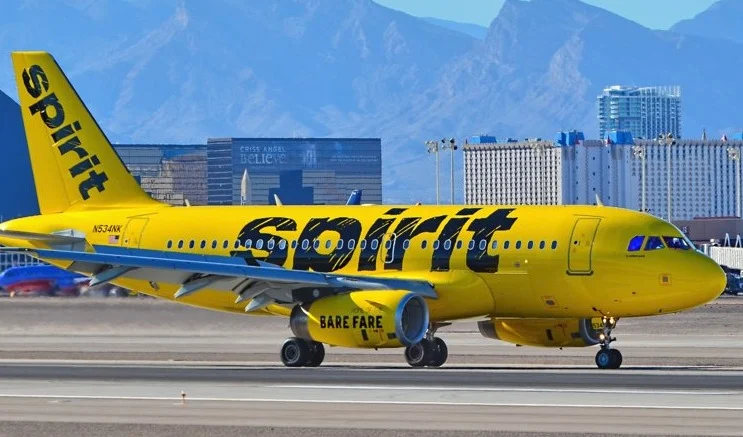Struggling with financial challenges since the beginning of 2020, Spirit Airlines finds itself at a critical juncture as it formally appeals a recent ruling blocking its proposed merger with JetBlue. The airline has taken a decisive step by filing a notice of appeal with the 1st U.S. Circuit Court of Appeals, adhering to the stipulations outlined in their original merger agreement.
The Justice Department, responsible for initiating legal action to block JetBlue’s proposed $3.8 billion purchase of Spirit, has chosen to remain tight-lipped about the ongoing legal saga. The decision to block the merger has far-reaching implications, not just for the airlines involved but for the broader aviation landscape.
JetBlue and Spirit, ranked as the nation’s sixth- and seventh-largest carriers, entered into a high-stakes merger agreement. JetBlue, emerging victorious in a bidding war against Frontier Airlines, argued that acquiring Spirit was imperative to bolster its competitive position against larger industry players. However, the ambitious merger faced a significant setback on Tuesday when a federal judge in Boston ruled that the proposed deal violated antitrust laws. The Justice Department’s legal challenge emphasized the potential harm to consumers and the risk of higher fares if Spirit, the country’s leading discount airline, were to be eliminated.
In response to the court’s decision, both airlines jointly announced their intent to appeal, providing a brief statement that left many questions unanswered. The lack of specific details in the announcement has left industry observers and stakeholders eagerly awaiting further developments.
Earlier on the same day, Spirit attempted to shift the narrative by reporting a notable uptick in fourth-quarter revenue. This positive financial development was attributed to a robust holiday travel season in December. However, the financial picture remains complex, and the airline is actively engaged in efforts to refinance $1.1 billion in debt due for repayment in September 2025.
Spirit also highlighted progress in negotiations with Pratt & Whitney regarding engine reworks, a factor that led to the grounding of an average of 26 planes daily throughout 2024. The airline expressed optimism about receiving compensation from these negotiations, providing a much-needed source of liquidity over the coming years.
The financial woes for Spirit began in 2020, and analysts have sounded alarm bells, warning that bankruptcy could become an imminent threat without the JetBlue merger. The appeal process will undoubtedly shape the future trajectory of both Spirit and JetBlue, influencing not just their financial well-being but the broader dynamics of the airline industry.
Following the appeal announcement after Friday’s market closure, Spirit’s shares, which had experienced a 62% decline over three days after the initial ruling, saw a 17% gain in regular trading. In after-hours trading, the stock rose an additional 13%. JetBlue’s shares, on the other hand, fell 2% in extended trading, reflecting the uncertainties surrounding the merger’s future and the broader market sentiment. As the legal battle unfolds, the aviation industry watches closely, aware that the outcomes could reshape the competitive landscape and the future of airline consolidation.

